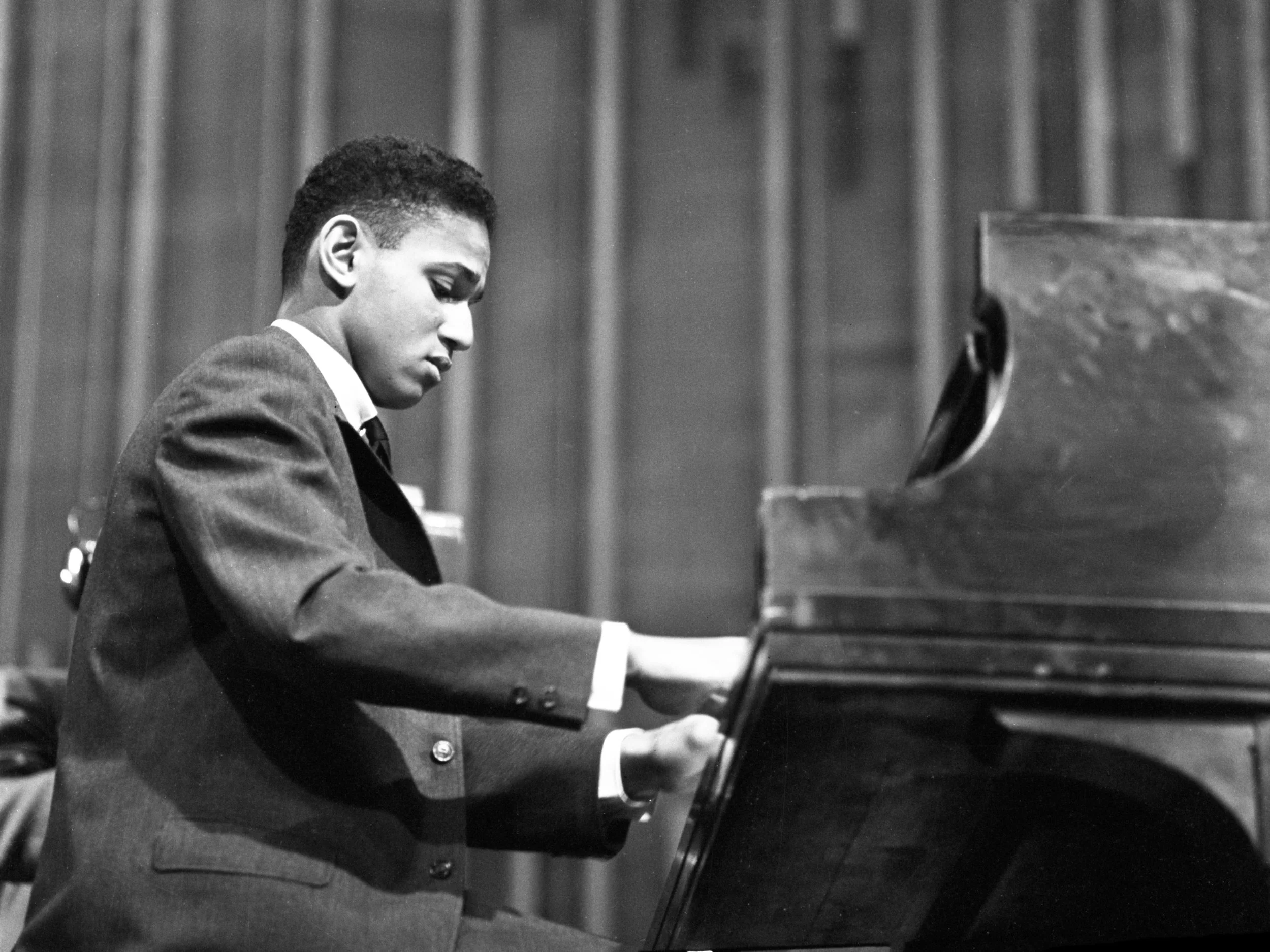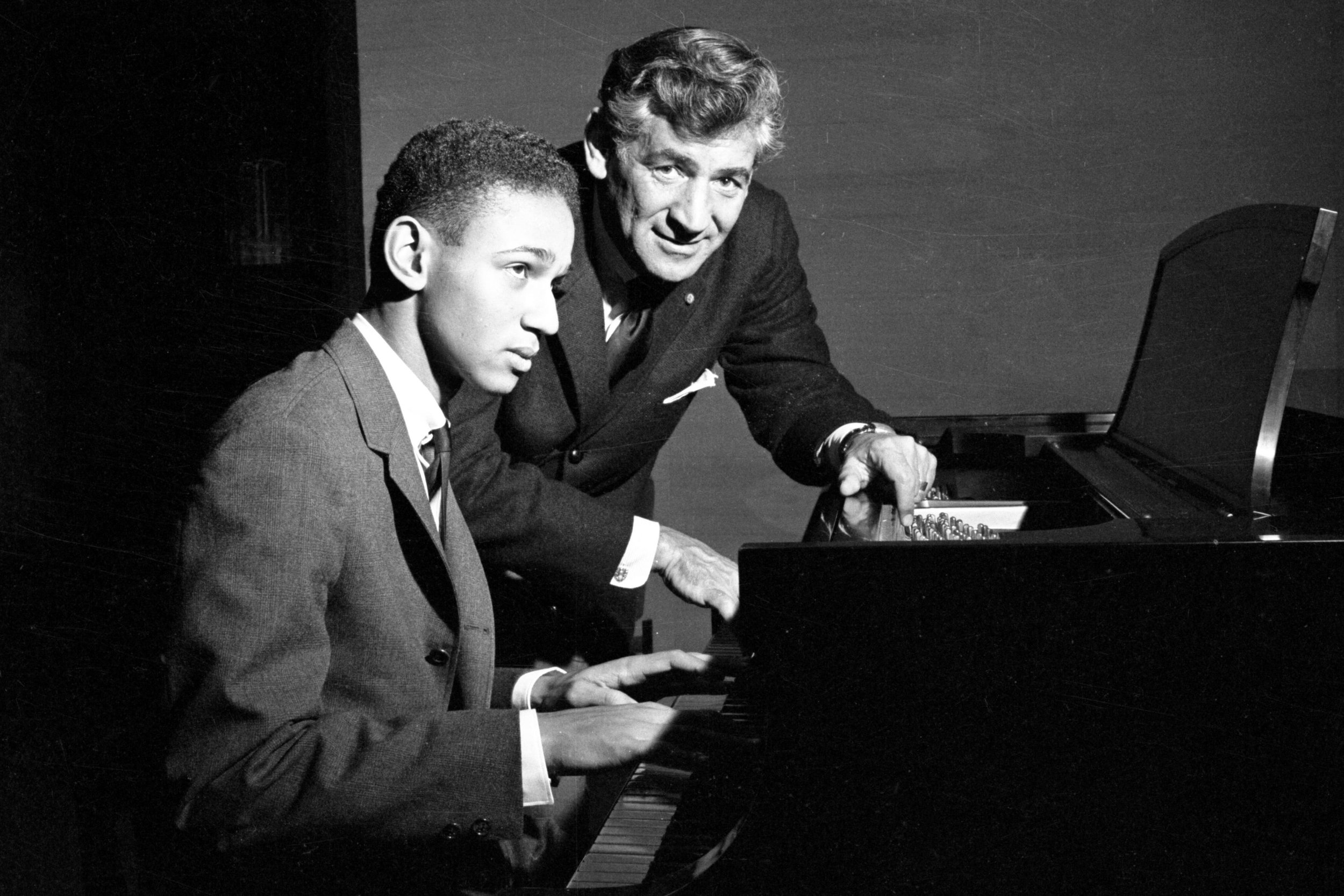Summary
Renowned pianist André Watts passed away July 12, 2023—his obituary can be found in The Economist.
In many ways, Watts’ life celebrates triumph over adversity via mastery of his craft.
“Be so good they can’t ignore you,” as Steve Martin suggests, certainly applies to André Watts.
His life and work offer valuable lessons in achieving mastery—and worldwide fame—despite numerous obstacles.
Prepare for launch
Sixty years ago, Leonard Bernstein—then the best conductor in the world—was in a pickle. His lead pianist, Glenn Gould, had fallen ill just days before the New York Philharmonic’s performance of Franz Liszt’s E-flat Concerto. Who could fill the vacant piano bench for this sold-out January 12, 1963 performance?
To make matters worse, not just anyone can play Liszt. Liszt pioneered the technique of thematic transformation, a method of development which was related to both the existing variation technique and the leitmotif by Richard Wagner. The difficulty—and skill required—to execute full-keyboard soaring flights was daunting.
André Watts got the call. Actually, his parents got the call because André was then only 16 years old. That phone call to a Philadelphia suburb changed the course of history.
Ascent
As the orchestra strenuously kept pace with the the 16-year-old virtuoso, jaws began to drop. A seemingly impossible alloy of improvisation and maniacal control blitzed their eardrums. It’s not everyday one gets to experience the nebula-fusion birth of a Romantic star.
“We simply flipped,” as Leonard Bernstein later recounted.
Watts’ radiant debut sparked demand for more Watts. His concert schedule went from zero per month to six per month. Within a year, André Watts was hoisting his first Grammy for “Best New Classical Artist” (an award which, sadly, was retired in 1986).
Tumultuous times
André Watts was black. His father Herman Watts was African-American, and his mother Maria Alexandra Gusmits was Hungarian (and a pianist who started teaching young André at age 6). Watts was one of only a few black classical performers in the world at the time. Within a few years of Watts’ celebrated 1963 Liszt performance, both Malcolm X and Dr. Martin Luther King Jr. would be killed in cold blood.
Perhaps Bernstein, who himself had gotten his glory shot by substitute conducting for Bruno Walter in 1943, was inclined to bestow opportunities to young, up-and-comers. Whatever the case, Bernstein brought Watts onto that stage, and the Romantic-classical world is better for it.
Casting off the critics
While other teenagers may have been fretting about prom dates, Watts was fortifying his mental game. At 16 Watts had already anchored his focus on his work—his piano playing performance—and heavily devalued the critical reception of his work:
“I really believe that at a certain point early on, I realized that you could have a great success even if you played like a pig, and you could play what you felt was truly beautifully and have - make no impact on people. And so I thought, well, you know, hope for the best, and just try to play well, and that's it.” (source)
But this one hurt. . .
But young André still had his moments of darkness and insecurity. A critic summarized his Hollywood Bowl performance as such: Watts' melodic line withers on the vine.
How Watts recounts this experience is instructive:
“I mean, you know, you got some 17-year-old kid who's starting his career, and you want to do a hatchet job on him. That's - can hardly be viewed as constructive. You could say that he let the melodic line die, sag and that he needs to learn how to sustain, if that's the case, which I didn't think was the case either, frankly. I didn't agree with the comment, aside from the fact that I thought it was vicious.
And that made me then - it gave me a lot of grief. But I would think about things, and I would think, well, now wait a minute. How - if someone is so ill-disposed, how much faith should you put actually in their musical judgment? How objective are they? I mean, do they really know what they're saying? And that got me over that sort of quickly.”
What is so powerful about Watt’s retelling of this story is you can feel his mettle forging, as if to ask: “Who is this small-time reporter anyways? And what of his credentials? Why should I care what ink he spills. . . I’m André Watts!”
Confidence in closing
Rest in Peace, André Watts. Your life’s work was undeniably masterful. Thank you for overcoming racial stereotypes, daring greatly and inspiring us with the purest form of victory.
— — — —
“It is not the critic who counts; not the man who points out how the strong man stumbles, or where the doer of deeds could have done them better. The credit belongs to the man who is actually in the arena, whose face is marred by dust and sweat and blood; who strives valiantly; who errs, who comes short again and again, because there is no effort without error and shortcoming; but who does actually strive to do the deeds; who knows great enthusiasms, the great devotions; who spends himself in a worthy cause; who at the best knows in the end the triumph of high achievement, and who at the worst, if he fails, at least fails while daring greatly, so that his place shall never be with those cold and timid souls who neither know victory nor defeat.”

